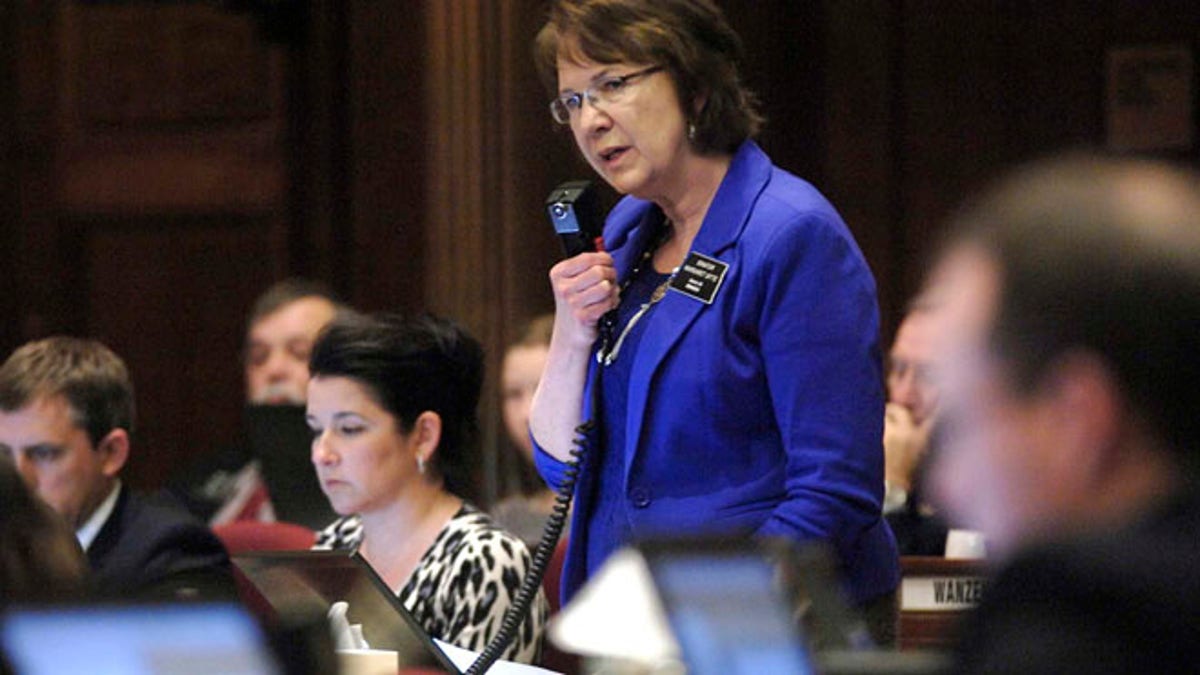
March 15, 2013: North Dakota state Sen. Margaret Sitte, R-Bismarck, speaks in favor of HB1305 during the chamber floor debate at the state Capitol in Bismarck, N.D. (AP/The Bismarck Tribune)
North Dakota lawmakers moved Friday to outlaw abortion in the state by passing a bill defining life as starting at conception.
The bill is one of a series of anti-abortion measures the Republican-controlled Legislature has passed this year despite critics' insistence that they are unconstitutional and violate a landmark 1973 U.S. Supreme Court ruling legalizing abortion until a fetus considered viable, which is usually at 22 to 24 weeks.
The North Dakota House approved the bill 57-35 Friday, sending it to the Republican governor, who has not yet said whether he will sign or veto it. The Senate approved it last month.
The so-called personhood measure bestows human rights on fertilized human eggs. Efforts to pass similar measures in other states have failed, but anti-abortion legislation has had strong momentum in North Dakota this year with lawmakers introducing a slew of measures aimed at closing the state's sole abortion clinic in Fargo and challenging the 1973 ruling, known as Roe v. Wade.
Before the House voted on the personhood bill, the Legislature had already passed measures that would ban abortion as early as six weeks, or as soon as a fetal heartbeat is detected, and because of genetic defects such as Down syndrome. Together, those bills would give North Dakota the strictest abortion laws in the nation.
Abortion-rights activists have said that if Gov. Jack Dalrymple signs any of them into law, they will fight them in court.
The threat of costly litigation may be less of a deterrent in oil-rich North Dakota than in other states, however. Booming oil production has helped the state avoid the kind of budget cuts seen elsewhere and left it with comfortable surpluses.
Lawmakers' Friday agenda also included other anti-abortion bills, including one outlawing abortions after 20 weeks of pregnancy based on the disputed premise that at that point, fetuses feel pain. Lawmakers passed another measure that requires a doctor who performs abortions to be a physician with hospital-admitting privileges.
Many of the North Dakota bills are modeled on legislation from other states.




